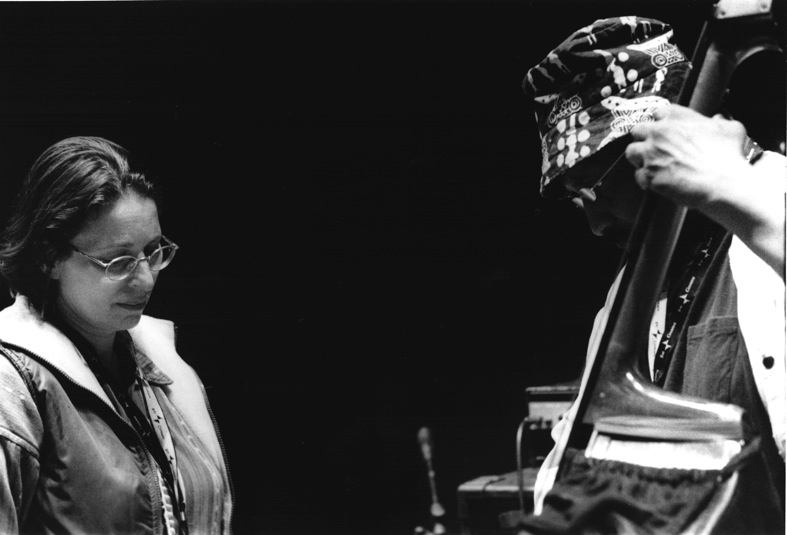Improv Notes: February 2012
|
Email not displaying correctly? View it in your browser |
|
 IMprov Notes: News of the Moment February 2012
Oral Histories Project
Oral Histories is a showcase of interviews, performances, and articles by and about improvising musicians, artists, writers and scholars. This new monthly feature will offer an intimate look inside the minds and practices of some of the many dynamic, innovative people whose energy and ideas make improvisation studies such a vibrant field of inquiry. The Oral Histories project provides a space for improvising artists to be heard in their own words, often in dialogue with other improvisers, scholars and practitioners. Over the coming year, witness conversations with musicians including Dave Clark, Tanya Tagaq, William Parker and Amiri Baraka, writer Cecil Foster, and scholars from fields as diverse as legal studies and musicology. The conversations and performances of this diverse group, drawn from ICASP’s online Research Collection in Improvisation Studies, are sure to inspire and to enlighten.
Read ICASP student Paul Watkins' reflective piece on the relationship between orality and improvised musical practices in our Research Collection, here.
Photo credit: Stefania Errore Creative power-couple bassist-composer William Parker and dancer-choreographer Patricia Nicholson Parker, do not mince words when it comes to artistic vision. In a 2008 interview in All About Jazz, Nicholson says “We need to take our visions seriously.” Early in their careers, Nicholson and Parker created a huge repertoire of composed music for multiple ensembles, directing and organizing “A Thousand Cranes Peace Opera,” for the opening of the UN Special Sessions on Disarmament and working with bassist Peter Kowald to help organize the artist-run Sound Unity Festivals between 1984 and 1988. Nicholson successfully initiated the Improvisers Collective, which morphed into the Vision Festival, and together they have worked meticulously to bring the Vision Festival to New York for the last 15 years. Parker emphasizes performance and Nicholson works tirelessly behind the scenes. Progressive jazz lovers in New York know the annual Vision Festival as a marker of endurance, emphasizing a sense of community as it continues to profile free jazz and avant-garde music in the face of more commercial musical enterprises. Art for Art, an organization Nicholson founded in 1995, also coordinates a weekly Vision Club series, and each year the Vision Festival honors the lifetime achievement of a particular artist. Listen to - or read - New York Times contributor Nate Chinen's broad-ranging conversation with Parker and Nicholson, and read Chinen's reflections on their discussion, in our research collection. Quote of the Month:
Improvisation is, simply put, being and living this very moment. No one can hide in music, and improvising in music is to be truly in this very moment and being completely yourself, with all your qualities and faults. It is probably the most honest state for a human being to be in, whether in music or life. The great thing about improvisation in general is that the listener is taken by the very spontaneity. This is our most natural state.
|
|




